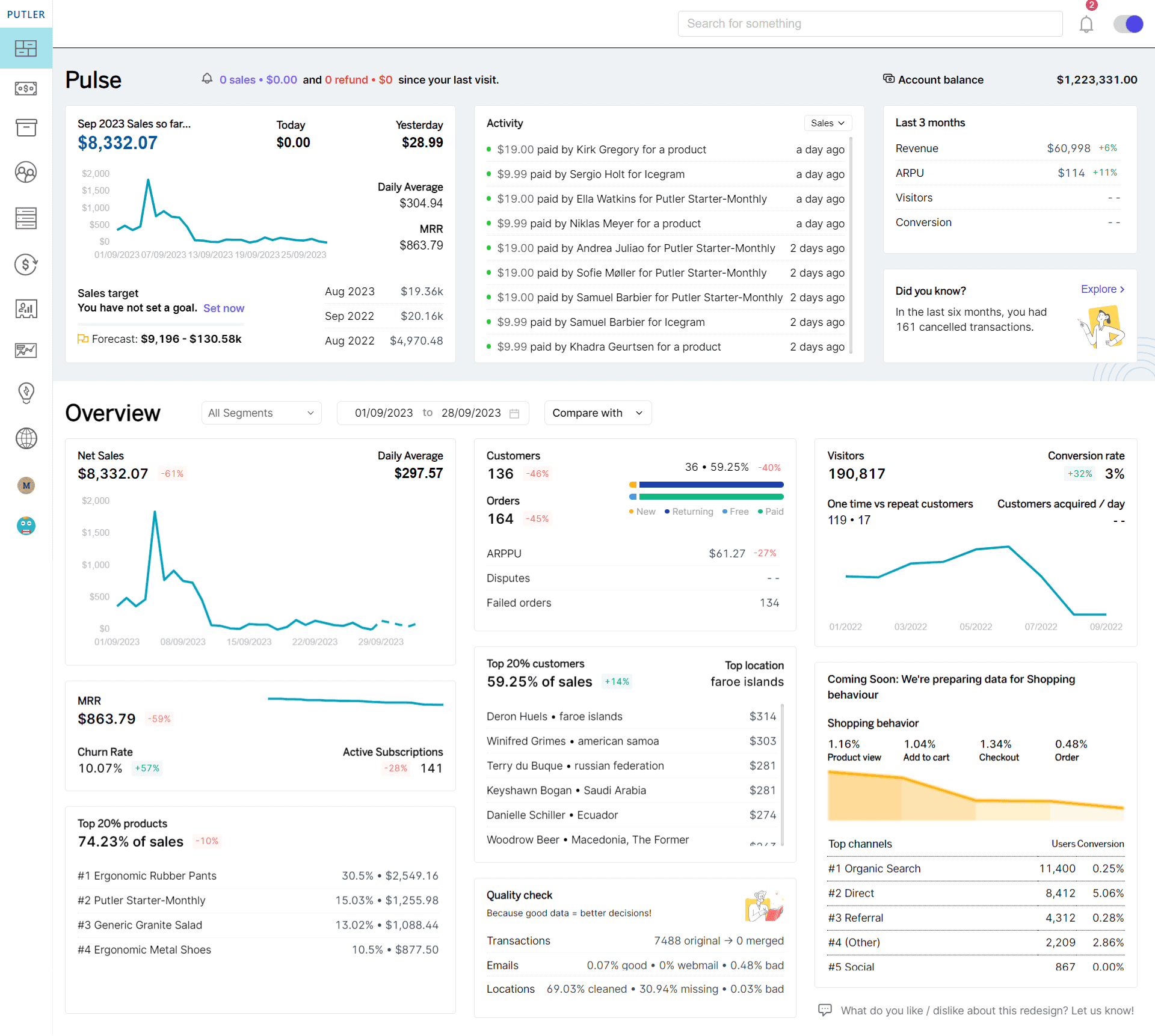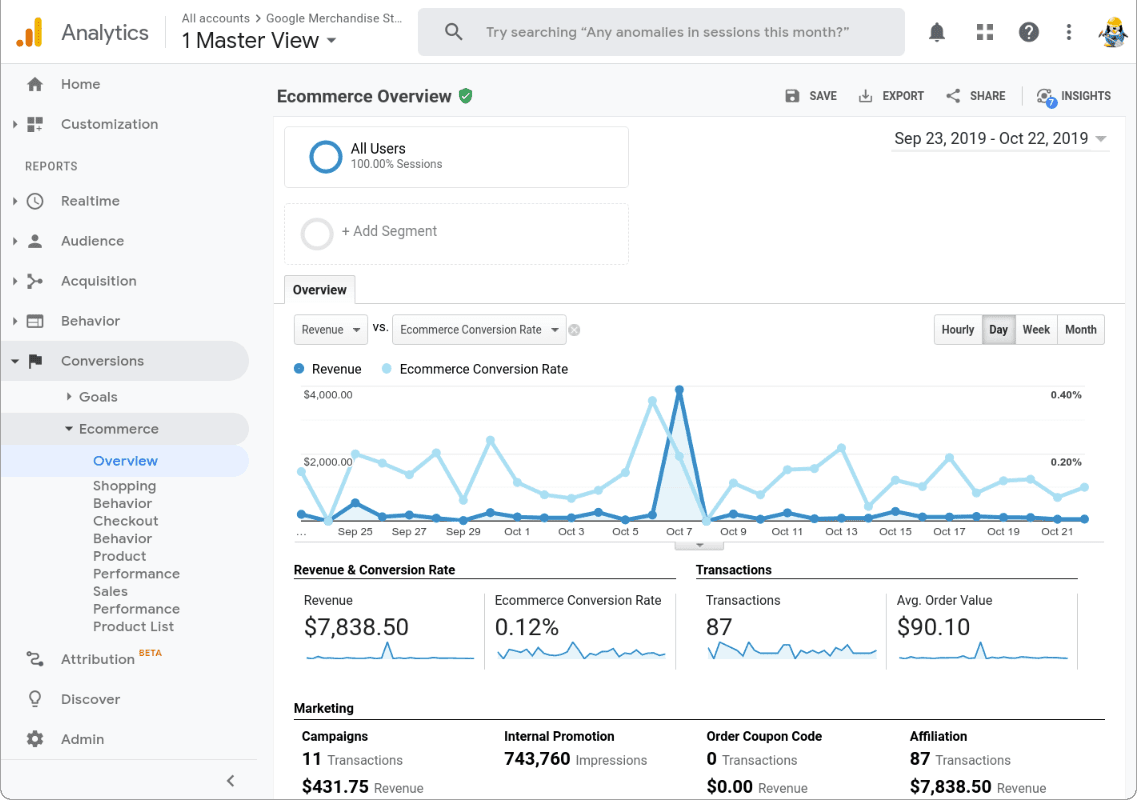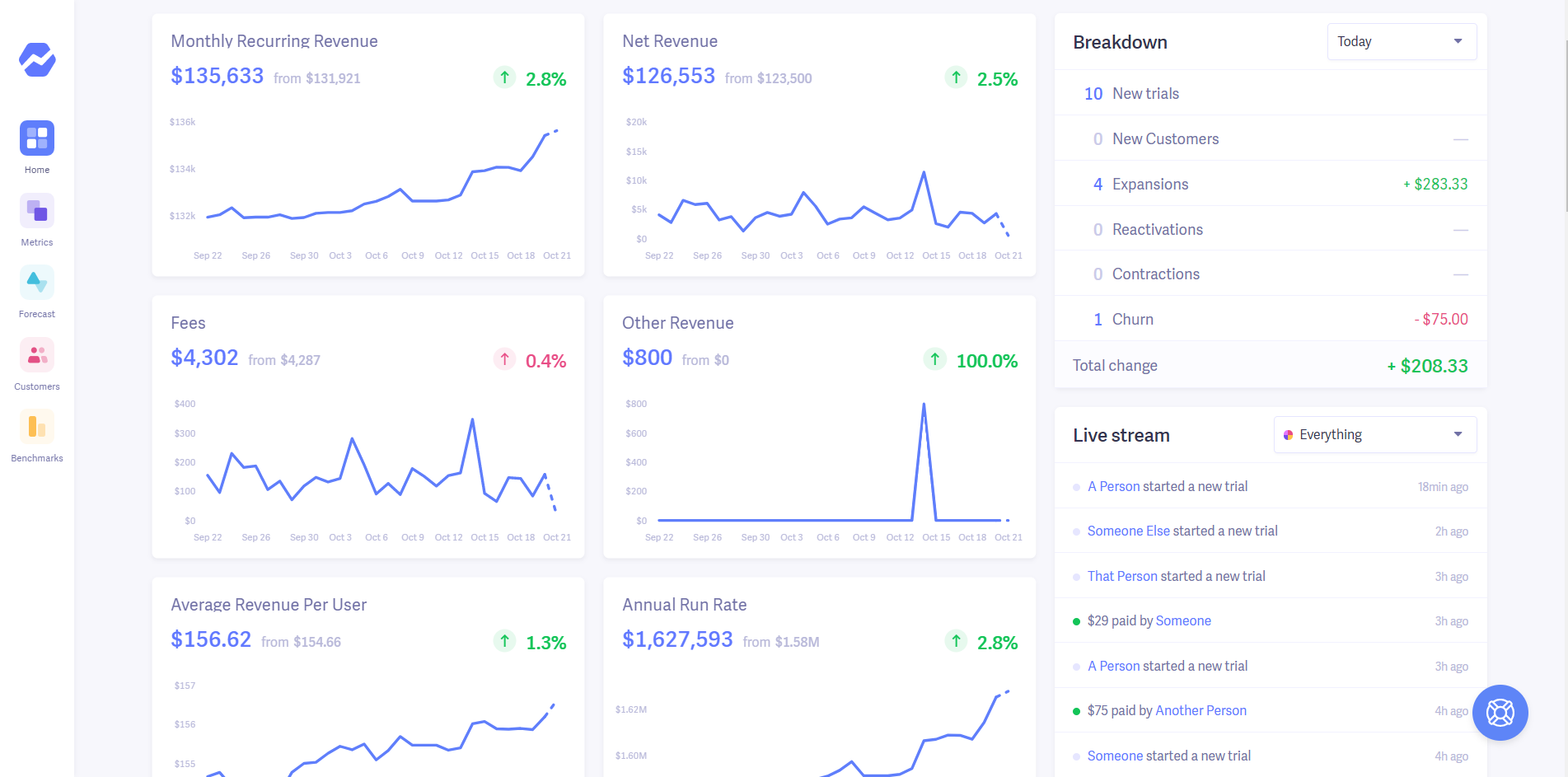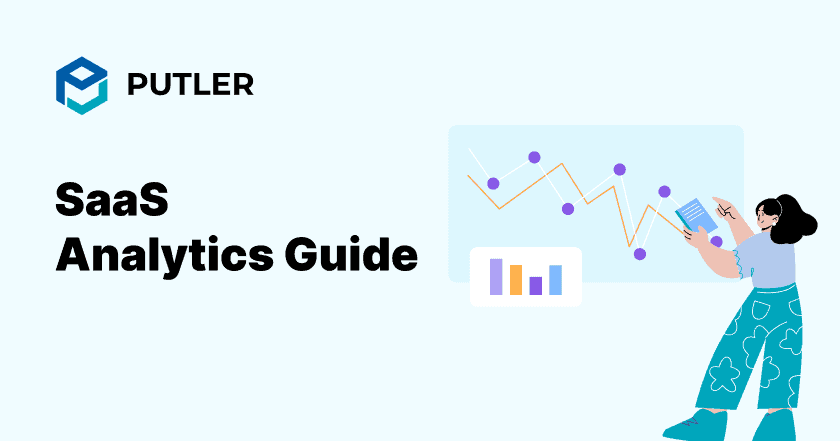In the world of SaaS, data isn’t just a buzzword; it’s your secret weapon. No frills, no hype — just raw power waiting to be harnessed for business triumph.
Forget drowning in information overload. This is your guide, your shortcut. We skip the small talk and dive straight into the core — game-changing SaaS metrics that fuel market domination.
CEOs get it — 93% are doubling down on data analytics. Why? Because in business, ignorance isn’t bliss. It’s the difference between soaring success and mere survival. In 8 minutes, we will show you not just why SaaS analytics is a game-changer, but precisely how to wield it.
Ready to strip away the complexity? Let’s decode, decide, and dominate.
What is SaaS Analytics?
SaaS Analytics is the strategic engine turning raw data into success for software-as-a-service companies. In a tech-fueled era, it’s the compass guiding businesses through data-driven decisions.
More than just deciphering data, it reshapes industry landscapes. Key Performance Indicators (KPIs) find meaning through Analytics, but what sets it apart is scalability — seamlessly handling vast data volumes in querying and reporting. This isn’t just a tool; it’s the competitive edge that propels businesses forward.
But, how does it help businesses, exactly? Let’s find out.
How SaaS analytics helps a business to grow?
When it comes to SaaS, growth isn’t a luxury; it’s a necessity. Yet, many miss the goldmine within — internal data. SaaS metrics and analytics can help you leverage this disruptor in the constant optimization game.
- Crafting compelling narratives with analytics:
Analytics in SaaS is about weaving narratives. Transform your data into compelling stories that resonate with your audience, turning insights into action and engagement.
- Unearthing churn in real-time:
Real-time insights are more than mere data points; they’re your secret weapon against churn. SaaS business analytics doesn’t just stop at the surface; it dives deep, helping you automate and halt churn at its roots.
- Trimming the fat with accurate data:
Know what works, cut the excess, identify pitfalls, and maintain agile strategies.
- Foresight through market trends:
They help you understand churn timelines, anticipate project revenue, and take proactive, preventive measures.
Why do you need SaaS analytics?
So, the question isn’t why, but why wouldn’t you embrace SaaS business analytics? Let’s understand the essentials –
- Churn Analysis
See the story behind customer departures in real-time. SaaS reporting and analytics decode this narrative, providing insights that empower you to anticipate, prevent, and conquer churn before it affects your business.
- Customer Segmentation
One size doesn’t fit all. Subscription analytics dives into user behavior, allowing you to segment customers and tailor their experiences based on their industry, MRR, LTV, or churn rate.
- Predictive Insights
The power to predict is the power to thrive. Alongside driving decisions in the present; SaaS data analytics lets you stay ahead of the curve. It unveils market trends, helps project revenue, and equips you with the foresight to step into the future with confidence.
So, subscription analytics is indeed a must-have. Now, let’s explore the top SaaS analytics tools, currently available in the market.
What SaaS metrics should you track?
Churn Rate, ARR, MRR, LTV, ARPU — these aren’t just acronyms; they’re your roadmap to SaaS triumph. In a sea of data, here’s your guide to cut through the clutter and spotlight the key metrics every SaaS business should have on its radar.
- Churn Rate
A pulse check for business health, the churn rate signals stickiness. It’s the percentage of departing customers over a period — a vital metric to optimize your product’s value continually. - MRR
Annual Recurring Revenue is your growth companion. MRR, the sum of all subscription items, forms the basis for calculating ARR (MRR multiplied by 12). Monitoring these SaaS metrics offers a strategic lens for both short-term and long-term planning. - Customer LTV
More than a metric, CLTV is a sneak peek into your future revenue. It’s the total expected revenue from a customer’s lifetime — a predictor that goes beyond conversion rates, guiding you accurately on revenue and profit forecasts. - Average Revenue per User
While often considered a vanity metric, ARPU unveils trends within customer cohorts. It’s not just about revenue; it’s a tool to identify patterns and optimize your business for a more robust SaaS profit pool.
These are the linchpins for success. They go beyond numbers, offering actionable insights that steer your business toward sustained growth and profitability.
Now we need to understand the vitality of subscription analytics in your business’s lifecycle.
Best tools for SaaS analytics
In the SaaS landscape, the right tools can make all the difference.
Let’s dive into some standout options:
Putler – All-in-one SaaS analytics

Simplicity meets power with Putler. It’s your go-to all-in-one solution, streamlining analytics and offering a comprehensive view of your business metrics.
Here are some of its features that can give you the best insights around SaaS.
- Comprehensive Data Integration
Putler collects data from various sources, merges them, enriches them, and gives you the most valuable insights for your SaaS business. And, that too in a very streamlined way.
Apart from the SaaS analytics dashboard and other dedicated dashboards, this tool offers a unified dashboard for a holistic view of your business.
- Real-time Metrics
Having your data presented to you in a crystal-clear manner is okay, but having the same happening in real-time is godsent. And, this is what Putler does.
This tool lets you stay ahead with real-time analytics, enabling quick decision-making and instant adaptation to market changes.
- Subscription Analytics
Tailored for subscription-based models, this tool excels in providing all the vital SaaS metrics – MRR, churn, AOV, and customer lifetime value (LTV) along with insights into the same.
- Predictive Analytics
Putler also lights the way forward.
With its forecasting capabilities, you can anticipate revenue trends, forecast outcomes, and make proactive decisions that set your SaaS business on the path to sustained success.
- On-demand Reports
Putler puts your insights in your hands anytime, anywhere.
Whether you’re in a crucial meeting or on the move, it ensures you can access your reports seamlessly.
It’s about empowering you with data accessibility – enhancing your ability to make informed decisions on the go.
Google Analytics – Free analytics tool

Google Analytics needs no introduction. It’s the free powerhouse in the analytics realm, providing a robust foundation for tracking and understanding user behavior. However, for SaaS, it might not be as useful.
- User Behavior Tracking
Google Analytics delves into user behavior, helping you understand how visitors interact with your SaaS platform. - Conversion Funnel Analysis
Identify bottlenecks in your user journey and optimize for conversions, ensuring a seamless user experience. - Custom Reporting
Tailor reports to your specific needs, providing actionable insights aligned with your business objectives.
Baremetrics – Best SaaS tool for tracking financial metrics

For those putting financial metrics in the spotlight, Baremetrics takes the lead. It’s not a simple analytics tool; it’s your financial tracking companion tailored for SaaS success.
Let’s uncover what makes Baremetrics the go-to choice for SaaS businesses.
- Financial Transparency
Baremetrics specializes in financial metrics, offering crystal-clear insights into revenue, churn, and customer acquisition costs (CAC).It’s more than numbers; it’s the financial heartbeat of your SaaS venture, laid out for you to decipher and strategize effectively.
- Forecasting Tools
Although it is not as efficient and versatile as that of Putler, Baremetrics’ forecasting features can empower you to anticipate trends, enabling proactive and informed business decisions.
It’s not just predicting; it’s preparing for what lies ahead.
- Subscription Analytics
Baremetrics unravels the intricacies of recurring revenue streams, providing insights that go beyond surface-level metrics.
It’s about understanding the dynamics that drive your SaaS success.
Stop thinking of these tools as mere options — they’re the keys to unlocking actionable insights and steering your business toward triumph.
Conclusion
SaaS analytics is your growth compass.
From deciphering metrics to leveraging tools like Putler, every insight propels you forward. Real-time metrics, data integration, and predictive analytics shift your journey from survival to thriving.
Unleash the power of analytics, decode narratives, and watch your business soar. It’s not just about data; it’s about unlocking growth stories.
Here’s to decoding, strategizing, and dominating in SaaS.
FAQs
What is the best tool for analytics?
The best analytics tool varies based on specific business needs. Putler offers comprehensive data integration, real-time metrics, and predictive analytics. Its unified dashboard and tailored subscription analytics make it a powerful choice for businesses seeking actionable insights and a holistic view of their metrics.
How can businesses leverage SaaS analytics for customer retention?
SaaS analytics aids customer retention by providing real-time insights into churn, enabling businesses to take proactive measures. Customer segmentation tailors experiences, boosting loyalty. Predictive insights anticipate needs, facilitating proactive retention strategies.
How can SaaS analytics improve business performance?
SaaS analytics improves performance by transforming raw data into compelling narratives, optimizing operations, and providing foresight into market trends. It helps identify inefficiencies, maintain agility, and make informed decisions for a competitive edge.
Can you use Google analytics for SaaS?
Google Analytics is potent for general analytics but it might lack SaaS-specific features. Putler and Baremetrics offer tailored solutions for subscription models, including real-time metrics and predictive analytics.
Can SaaS analytics help in predicting market trends and customer behavior?
Yes, SaaS analytics predicts trends by analyzing historical data, offering foresight into market trends, and enabling proactive decisions. Customer segmentation based on industry, MRR, LTV, or churn rate enhances understanding and tailors strategies for a personalized customer experience.
